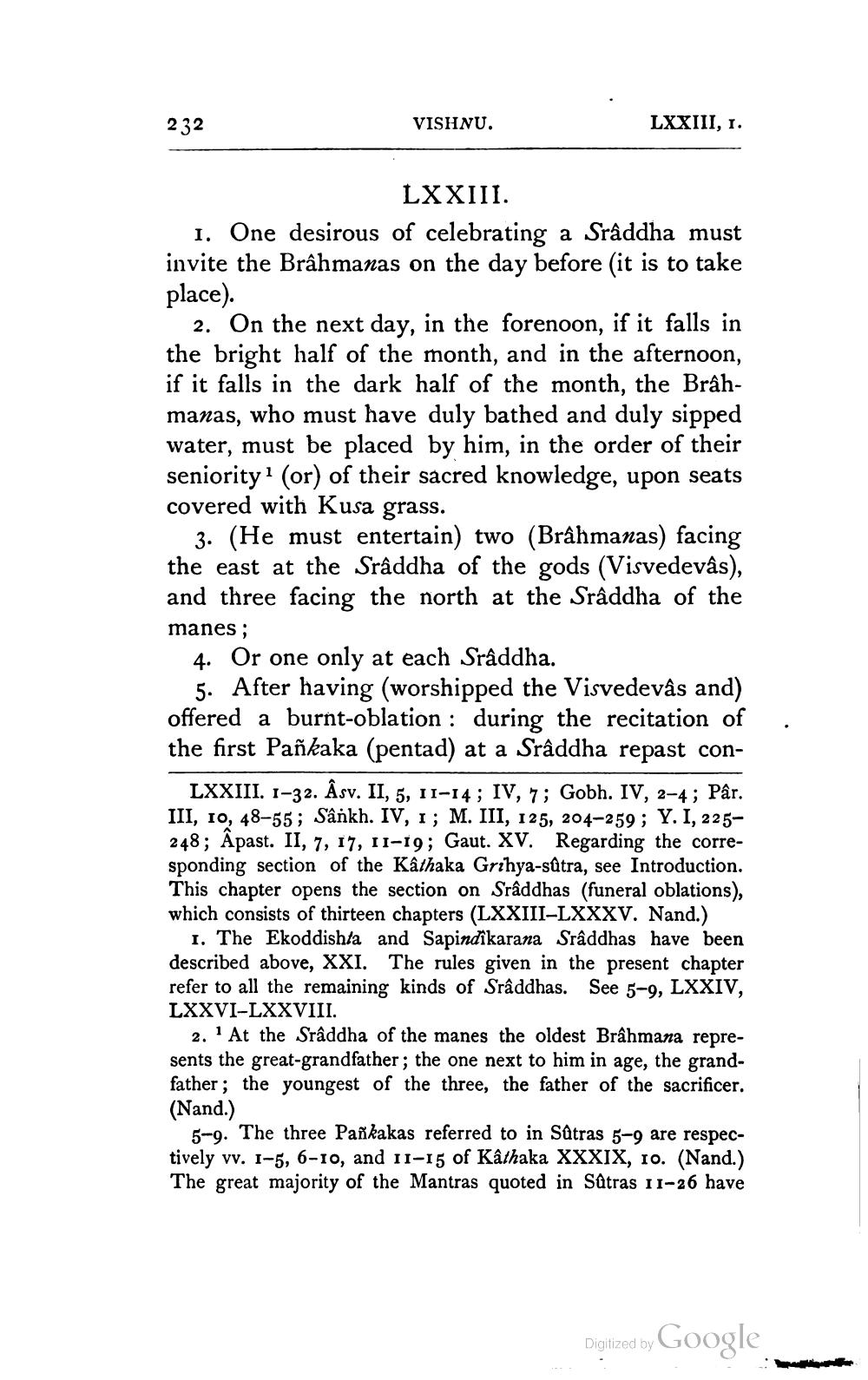________________
232
VISHNU.
LXXIII, 1.
LXXIII. 1. One desirous of celebrating a Sraddha must invite the Brâhmanas on the day before it is to take place).
2. On the next day, in the forenoon, if it falls in the bright half of the month, and in the afternoon, if it falls in the dark half of the month, the Brâhmanas, who must have duly bathed and duly sipped water, must be placed by him, in the order of their seniority? (or) of their sacred knowledge, upon seats covered with Kusa grass.
3. (He must entertain) two (Brâhmanas) facing the east at the Sraddha of the gods (Visvedevas), and three facing the north at the Sraddha of the manes;
4. Or one only at each Sraddha.
5. After having (worshipped the Visvedevâs and) offered a burnt-oblation : during the recitation of the first Pañkaka (pentad) at a Sraddha repast con
LXXIII. 1–32. Âsv. II, 5, 11-14; IV, 7; Gobh. IV, 2-4 ; Pâr. III, 10, 48–55; Sânkh. IV, 1; M. III, 125, 204-259; Y. I, 225248; Apast. II, 7, 17, 11-19; Gaut. XV. Regarding the corresponding section of the Kathaka Grihya-sútra, see Introduction. This chapter opens the section on Sraddhas (funeral oblations), which consists of thirteen chapters (LXXIII-LXXXV. Nand.)
1. The Ekoddishta and Sapindikarana Sraddhas have been described above, XXI. The rules given in the present chapter refer to all the remaining kinds of Sraddhas. See 5-9, LXXIV, LXXVI-LXXVIII.
2. 1 At the Sraddha of the manes the oldest Brâhmana represents the great-grandfather; the one next to him in age, the grandfather; the youngest of the three, the father of the sacrificer. (Nand.)
5-9. The three Pankakas referred to in Sätras 5-9 are respectively vv. 1-5, 6-10, and 11-15 of Kathaka XXXIX, Io. (Nand.) The great majority of the Mantras quoted in Sätras 11-26 have
Digitized by Google
Digitized by




